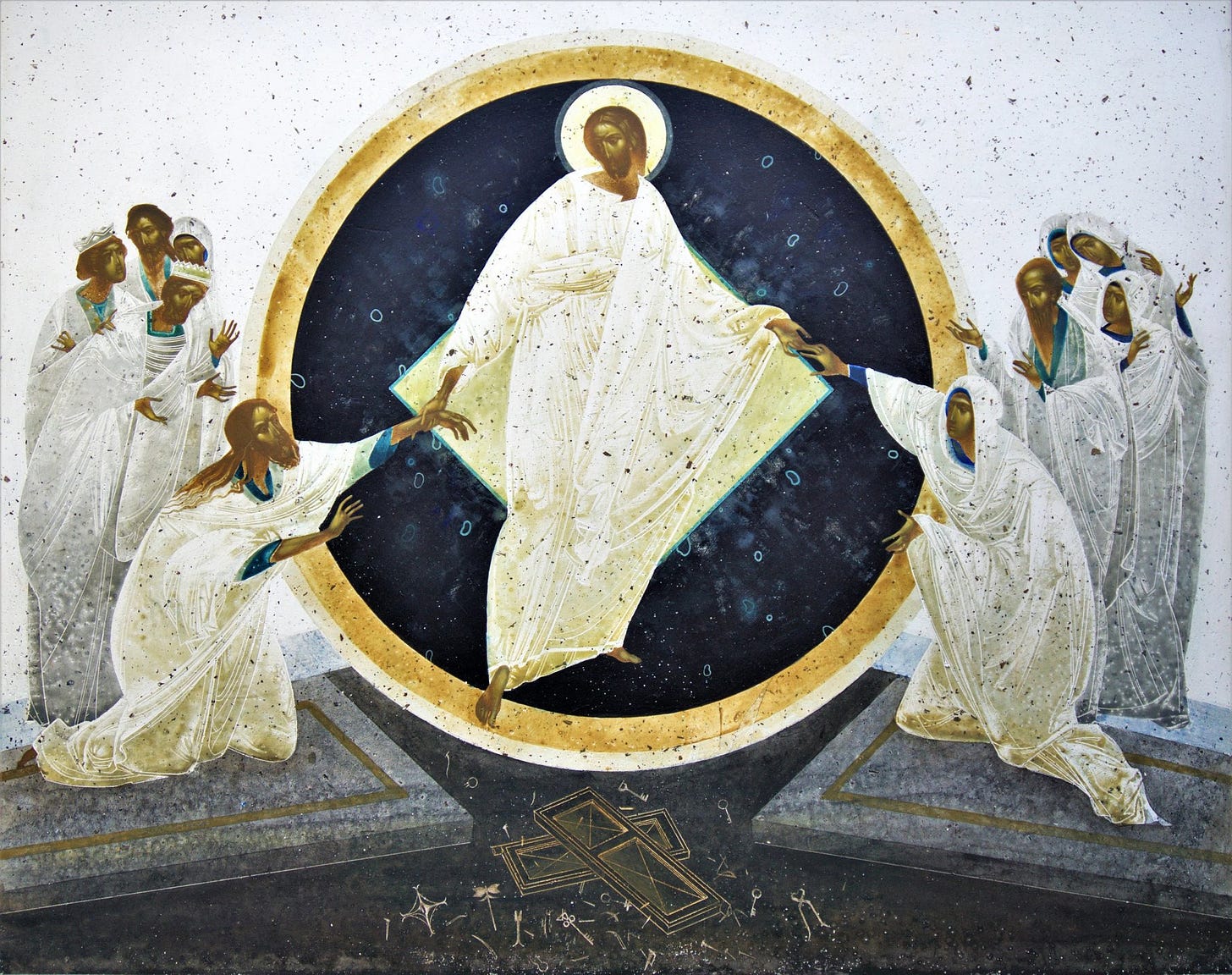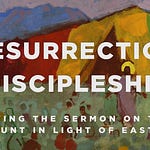One of my favorite movies is Love Actually. During Christmas, I will watch this movie no less than five times, and if you’re here in December, I will be sure to quote the film in nearly every sermon leading up to Christmas. Before you write me off because you cannot stand the movie (probably because you lack my level of sophistication), hear me out. At the film's beginning, a narrator describes what it is like at the arrival terminal at Heathrow International Airport. As the narrator speaks, the camera pans over people anxiously waiting, some on their tippytoes as they attempt to see over the crow, to see someone – a friend or family member – they have been longing to see. The narrator says that love is all around but if you have every been to the arrival area of an airport you might agree that if anything is “all around,” it is stress.
Imagine you are at DCA in the arrival area, waiting for a family member – your mom – to arrive. She makes the best coconut cake, and you have all the ingredients ready on your kitchen counter. She is going to teach your children, her grandchildren, how to make this family-famous delicacy. You check your phone every few minutes, track the plane as it lands, and then park at a gate. Your children are holding a sign and welcome balloons. The baggage carousel begins to move, and the bags start to disappear one by one.
You begin to panic after the last bag on the carousel is gone. You walk over to the American Airlines information desk. The agent asks how they can assist you. Your children blurt out, “We’re waiting for grandmom!” You then explain to the agent that your mom was on a flight from Dallas to DC. You give the agent the flight number, and the agent goes to work. After a few moments of awkward silence, the agent answers the phone that had been ringing.
After hanging up the phone, the agent asks, “Who are you looking for again?” Your heart rate is rising along with your frustration.

“I’m looking for my mother,” you shout. You give the agent your mother’s name again. Again, you tell the agent the flight number and departure time.
The agent smiles. “Ma'am, your mother’s flight has landed safely. She is waiting for you.”
“It did?”
“She is?”
“Ma’am, her flight landed at Dulles.”
“Whom are you looking for?”
The stone had been rolled away. Jesus’s body was gone. The other disciples had left, and Mary was alone. She was weeping outside the empty tomb. Two angels asked Mary why she was weeping.
“They have taken Jesus,” she tells them. “I do not know where he is.”
Mary heard a sound. She turned around. It was the gardener, or so she thought.
Mary had gone to the cemetery to anoint Jesus’s body with perfume so he could be properly buried. Mary expected to grieve. She was not expecting the stone to be rolled away. She was not expecting Jesus’s body to be gone. She was not expecting unhelpful angels or a gardener.
We hosted an Easter Egg Hunt in the Chapel Cemetery on Saturday morning. For many of us, a cemetery is the last place we would expect to find children laughing and having fun. If you have ever been on a tour of Arlington National Cemetery, you have heard the urgent whispers of parents telling their children to “hush.” A cemetery is the last place many of us would expect to hear laughter or merriment. Cemeteries are places for mourning and honoring the dead. Not a place for celebration.
Rev. Fleming Rutledge likes to point out that no one, two thousand years ago or today, goes to a cemetery expecting the dead to be alive. You did not show up here this morning expecting the dead to be alive in the same way you do not go to DCA expecting to have them drive to Dulles or, worse, BWI. Had the Walker Chapel cemetery graves been dug up when you arrived this morning, you may have turned around and returned to your car. Had the graves been dug up, you might have questioned your judgment after attending yesterday’s egg hunt.
Jesus told Mary and the other disciples precisely what would happen. Three times, he told the disciples that the sorrow of Good Friday would not last, and still, they came to the cemetery expecting to find something different. Mary arrived expecting a body in need of anointing.
Maybe she expected to weep and say her goodbyes. John and Peter did not wait around long enough to be asked, “Whom are you looking for?”
We arrived here this morning expecting to find one thing or another.
Perhaps you arrived expecting brass or timpani and were delighted to find both.
Perhaps you arrived expecting to have all of your questions answered or your doubts addressed, only to now have more questions.
Or, maybe you stopped her along the way to DCA or Dulles and came inside because you heard the music and wanted to see what was happening.
“Whom are you looking for?” Jesus asked Mary.
Mary was pulled from her grief when Jesus called her by name.
“Mary!” “Do not hold on to me because I have not yet ascended to the Father. But go to my brothers and say to them, ‘I am ascending to my Father and your Father, to my God and your God.’”
Whatever the reason you came here this morning, our risen Lord is calling you by name, calling you to you in the midst of your grief or doubt. Calling you in the middle of joyous laughter and fun with onlookers says your behavior is inappropriate for the location. Calling you, just as he called the disciples away from their nets, calling you to a new life of following him, a life that promises new life.
The grace of God, the love of God, is all around, especially on days like today. We all arrived here this morning in our Easter, best looking for one thing or another, and like Mary, we find that our risen Lord has plans for us that do not match what we had planned for ourselves. And that’s the good news of this day, is it not? No matter how we found ourselves here or for what reason, Christ still calls out to us by name. Calling us by name, like Mary, Jesus is inviting us to new life is only possible through God‘s grace.
“Whom are you looking for?”
Alleluia! Christ is Risen! He is risen indeed! Alleluia!


















Share this post